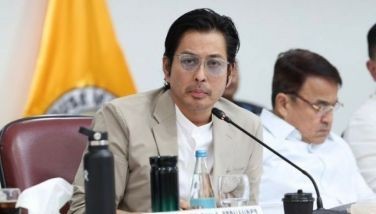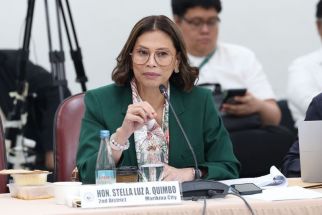National Language Month and our youth

Every August, the Philippines celebrates National Language Month when various events, especially in schools, prepare for the biggest day of celebration on Aug. 19, known also as National Language Day, through declamation contests, dance performances and a showcase of our national costumes with the intent to inspire people, especially young people, to value their culture and traditions and more so, one’s native language. With thanks to the Father of Philippine Language, President Manuel L. Quezon who proclaimed through an executive order in December of 1937, the adoption of a national language which was meant to unify the whole country in order to express the ideas and ideals of the people.
Language as we know – we MUST know – is so important as through it, we create a sense of community and in terms of our identity, it is essential in communicating beliefs and customs that foster feelings of solidarity or belonging. The Filipino culture is not only rich but also diverse in terms of languages, with the eight major languages being Tagalog, Ilocano, Kapampangan, Pangasinense, Bikolano, Cebuano, Hiligaynon and Waray. It is said that the Philippines actually has more than 170 languages and dialects, with each dialect reflecting its own identity and subculture. Because of this, our history has shown us that we Filipinos, especially during the colonial period, did not have a language that could unite us until the 1937 Philippine Constitution identified Filipino, a Tagalog-based dialect, as the national language.
Buwan ng Wika is a month-long celebration in August that also promotes our native dialects and not only the Tagalog based language. Our youth are the first to learn about our culture through their education both in school and at home, and they will continue learning about their native language in the coming years as they grow closer to adulthood provided that we, their elders, continue engaging them on its importance. Teachers and parents alike have found creative ways to communicate its significance through activities such as word games that capitalize on mastery and practice through repetition and familiarity, as well as other forms of learning through art, song or dance.
One of my fondest memories growing up and celebrating Linggo ng Wika at school was listening to our folk singer Florante de Leon’s song called “Ako’y isang Pinoy” which to me fully embodies the value of our national language while embracing our own identity. Like Quezon, we have all come to realize how essential it is for all of us to come together through one language in order to appreciate and accomplish our daily goals. However, I have to admit that we still struggle with the understanding of a language’s power to “weld” us into one strong nation.
And again, just like Quezon, by no means do I and many others find the need to seek replacement for languages that are certainly useful to us, which in turn also provide preservation for us in terms of our culture and our “point of contact” with other cultures where there are obvious gains in the knowledge of such languages. I simply say this because, in order for us to embrace what is our own, we must also acknowledge the sum of all parts that are beneficial to us as we continue to consolidate and invigorate (as Quezon said) our national unity.
National thought, as Jose Rizal said, takes its roots in a common language and today, decades after our heroes have long gone, we are growing closer to a more inclusive society that is not only a place for people of different backgrounds but a home for those who want real change in their country and, through a common language, our purpose is yet to be fulfilled. The youth have become more aware of our culture, now more than ever before, as they are living in a society where we, their elders, have shown them a different way of thinking about how they can be more participative in nation building by including them in the way decisions are being considered for the next generation of young people.
I too am learning about how to make celebrations such as this more empowering for the whole of society as we all have been living through different circumstances that alter the way we view life. However, history, as Ambeth Ocampo said in a recent conference I attended, must shed light and not heat, hence, when it comes to the younger generation, finding the light in celebrating National Language Month enables them to fall back on their roots in order for them to be more participative in moving a nation forward through a common language.
- Latest
- Trending

























